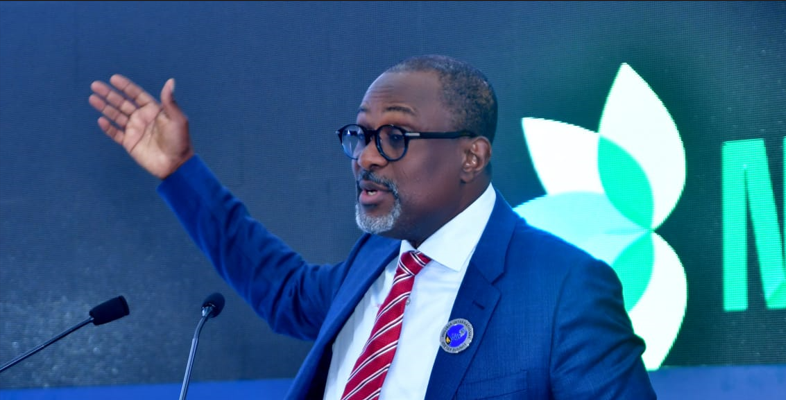Nigeria’s oil and gas sector faced a fundamental human capital challenge when Simbi Wabote assumed leadership of the Nigerian Content Development and Monitoring Board (NCDMB) in 2016. Despite decades of hydrocarbon wealth, the country lacked the skilled workforce needed to operate sophisticated energy infrastructure, forcing continued dependence on expensive expatriate expertise.
Wabote’s response was characteristically systematic: a comprehensive human capacity development program that would train over 12,000 Nigerians and deliver more than 15 million training manhours across multiple skill categories. Over 5,000 trainees secured employment in the industry, demonstrating that strategic workforce development could rapidly build indigenous expertise.
60 per cent of the Board’s and industry’s training resources and efforts will be devoted to providing young Nigerians with specialized skills they need to secure employment, Simbi Wabote explained, outlining his 60-20-20 training model that prioritized job-ready skills over theoretical education.
The program represented more than vocational training — it constituted a deliberate effort to build Nigeria’s technical sovereignty in one of its most economically critical sectors.
The Expatriate Dependency Challenge
Nigeria’s oil industry had operated for decades on imported expertise, with expatriate quotas reaching over 2,000 approvals annually during peak periods. While expatriate employment provided knowledge transfer opportunities, the high costs and limited local capacity building created unsustainable dependency.
Wabote recognized that sustainable local content required more than regulatory pressure on companies to hire Nigerians. Indigenous workers needed genuine competence to perform complex technical roles, from offshore drilling operations to subsea engineering and petrochemical processing.
The challenge extended beyond basic technical skills. Nigeria’s education system, while producing large numbers of engineering graduates, often failed to provide industry-specific expertise that oil and gas operations demanded. Graduates understood theoretical concepts but lacked practical experience with specialized equipment, safety protocols, and operational procedures.
The 60-20-20 Strategic Framework
Wabote structured human capacity development around a systematic allocation model. Sixty percent of training resources focused on specialized skills directly linked to employment opportunities. Twenty percent addressed soft skills and basic learning foundations. The remaining twenty percent targeted productivity improvements for already-employed personnel.
This framework prioritized immediate employability over lengthy academic programs. Rather than sending students abroad for degree programs that might not match industry needs, NCDMB concentrated on practical skills training that companies could immediately utilize.
The approach required close collaboration with oil industry operators to identify specific skill gaps and emerging workforce needs. Training programs were designed around actual job requirements rather than generic curricula.
Technical Skills Development Success Stories
The Lagos Energy Academy collaboration demonstrated the model’s effectiveness. NCDMB partnered with AOS Orwell and Lagos State Electrical Engineering to train engineers and technicians, with the first batch of 50 enrollees graduating without a single dropout. International certification by Siemens validated the training quality, while the program achieved over 80% job placement rate with employment secured in companies including AOS Orwell, Daystar Power Group, Eauxwell, and Jubaili Bros.
Most remarkably, the program achieved export of talent as four trainees secured international job placements with BIC Electric, demonstrating that Nigerian technical training could meet global standards.
Marine sector training produced equally impressive results. NCDMB trained 59 marine cadets for international sea-time experience aboard foreign-bound vessels, building the expertise needed for Nigeria’s expanding fleet of indigenous-owned offshore support vessels.
The Field-ready Initiative trained 500 graduates in practical oil and gas skills, with several receiving immediate employment offers from industry operators seeking qualified local personnel.
Geographic Distribution and Community Impact
Wabote’s training programs extended across Nigeria’s geography, ensuring that human capacity development benefits reached multiple regions. The GSM repairs training alone covered over 7,000 trainees across Bayelsa, Kano, Kaduna, Cross River, and Yobe states, focusing on both hardware repairs and software development.
This program created entrepreneurship opportunities in telecommunications sector repair services while building technical skills transferable to oil and gas electronics systems. Many trainees established independent repair businesses, contributing to local economic development beyond the energy sector.
Teacher development training reached 2,500 educators in Katsina and Bayelsa states, focusing on STEM education enhancement. NCDMB constructed science laboratories in various schools and established 70 ICT centers in secondary schools, creating educational infrastructure to support long-term technical workforce development.
The Graduate Agriculture Entrepreneurship Training (GAET) scheme trained 1,200 youths in poultry production and processing, with canteens serving the oil and gas industry as target off-takers. This demonstrated sectorial linkage thinking — connecting energy industry food service needs with local agricultural capacity.
Institutional Infrastructure Development
Wabote’s human capacity strategy included substantial investments in educational infrastructure. NCDMB completed construction and equipping of 5 workshops at GCDC Bassambiri, renovated and upgraded STEM laboratories for FSTC Tungbo, and installed Internet Service Infrastructure for NMU Okerenkoko.
The Board completed and commissioned construction of 3 workshops and 3 classrooms for the University of Ibadan, achieving 90% completion of the Youth Resource Centre upgrade in Bekwerra. These infrastructure investments created permanent platforms for ongoing technical education.
The scope extended to specialized facilities like marine engineering laboratories and technical college expansions. Government Technical College Port Harcourt received construction and equipping of mechanical workshops, 24 classroom blocks, 200-bed student hostels, 4 technical workshop blocks, ICT centers, and principal’s lodge renovations.
Business Development and Mentoring
Beyond technical skills, Wabote recognized that sustainable local content required entrepreneurial capacity. The Project-100 platform provided business mentoring for Nigerian vendors, with over 1,400 participants attending sessions focused on commercial skill development.
PETAN partnered with NCDMB for internship programs covering 100 Nigerians with backgrounds in petroleum, electrical, mechanical engineering, and geosciences. This provided direct industry exposure and employment pathways for recent graduates.
The Fair Chance Initiative addressed social development alongside technical training. NCDMB trained 200 internally displaced persons on various crafts including welding, digital media, painting, carpentry, plumbing, and wood carving. Trainees received starter packs and participated in 3-month mentorship programs, with many securing employment in construction companies.
North-East Integration
The Employment Pipeline Results
>
